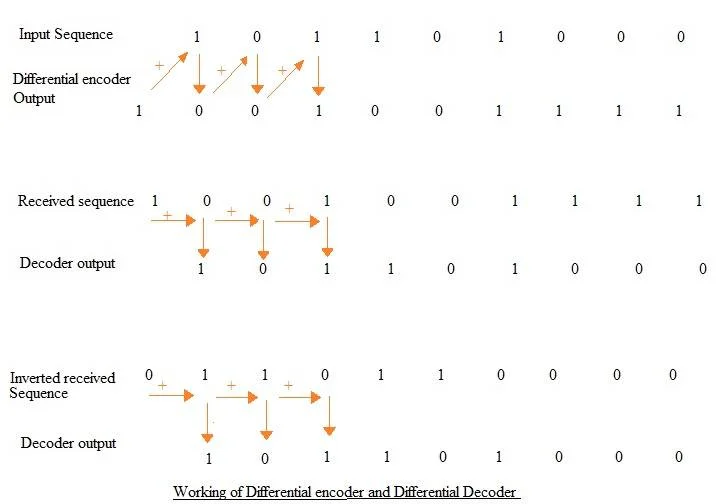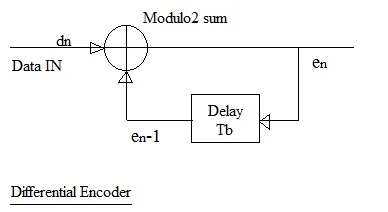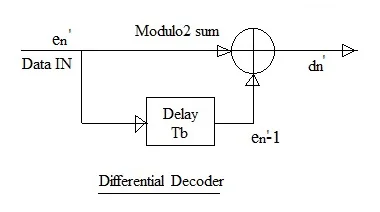Differential encoder vs differential decoder
As we know synchronization is very essential in digital communication system. This is needed in the receiver to detect the transmitted data from the received corrupt input signal waveform. Three types of synchronization need to be performed in the receiver viz. bit synchronization, frame synchronization and carrier synchronization. Bit synchronization help distinguish bit intervals.

Fig.1 System block diagram
Differential encoder is used for this. It removes unintentional inversion of the binary input waveform. Polarity of the differentially encoded signal cab be inverted without having any effect on the decoded signal waveform.

Fig.2 Example showing decoding is same even if polarity has been inverted.
Differential Encoder
 Fig.3 Differential encoder
Fig.3 Differential encoder
In the differential encoder, input data bits are modulo 2 SUM with the previous output bits.
Modulo 2 SUM is same as EX-OR. The differential encoder equation is mentioned below.
en = dn ⊕ en-1
Differential Decoder
 Fig.4 Differential decoder
Fig.4 Differential decoder
In the differential decoder, current input and delayed version of the same is fed to the module 2 sum.
This produces the output bits. The differential decoder equation is mentioned below.
d'n = e'n ⊕ e'n-1
This combination of encoder and decoder help in clock recovery and hence data bit streams can be easily derived even after corruption and phase inversion.
Useful Links
what is modulation
MSK and GMSK modulation
8-PSK modulation
BPSK modulation
QPSK modulation
QAM modulation
BPSK vs QPSK -Difference Between BPSK and QPSK modulation techniques.
QPSK vs OQPSK vs pi/4QPSK-Difference between QPSK,OQPSK and pi/4QPSK modulation techniques
Differential Encoder and Decoder
What is Difference between
difference between OFDM and OFDMA
Difference between SC-FDMA and OFDM
Difference between SISO and MIMO
Difference between TDD and FDD
FDMA vs TDMA vs CDMA
FDM vs TDM
CDMA vs GSM
